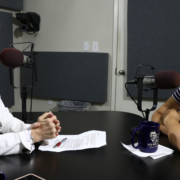Price gouging a threat to consumers in new economy
In past natural and man-made disasters, whether in the aftermath of Hurricane Katrina or the 2008-09 financial crisis, opportunistic bad actors have sought to squeeze every last penny from desperate consumers. Unfortunately, the COVID-19 crisis seems to be a little different in this respect.
In the earliest days of pandemic panic, reports of overpriced goods were widespread; products were flying off of shelves, and those that remained were often dramatically marked up. NCL learned of $10 milk, $100+ dollar masks, and outrageous prices on toilet paper. Two Tennessee brothers who stockpiled 17,700 bottles of hand sanitizer with the intent to sell them at a mark-
up online earned instant national notoriety.
“Like moths to the flame, profiteers cannot resist the allure of easy money. In this time of national emergency, it should perhaps come as little surprise that those who wish to make a quick buck off the desperation of consumers are finding few obstacles in their way,” said NCL Executive Director Sally Greenberg.
This spring, price gouging proved to be an immediate threat to consumers across the nation, as unscrupulous sellers increased pricing online and in-person of essentials ranging from personal protective equipment, hand sanitizer, disinfectant products, and even toilet paper and paper towels.
According to the National Law Review, “in normal times, there would be nothing problematic about a seller’s unilateral decision to increase its prices in response to higher consumer demand. However, with emergency declarations in most—if not all—states, such price increases may lead to hefty civil fines and even imprisonment under state laws prohibiting price gouging.”
Indeed, price gouging in times of crisis is illegal in most states. For example, Maryland’s anti-gouging statute prohibits raising the price of many consumer goods and services that increase the seller’s profit by more than 10 percent while the COVID-19 emergency, declared by Governor Larry Hogan, is in effect. California has a similar statute, punishable by up to a year in jail and a $10,000 fine.
“While state laws are important, enforcement alone won’t solve this problem,” said Greenberg. “Reputable businesses must also play their part to keep price gouging off their shelves. We are encouraged when we see sellers committing to stomping out price gouging, such as Amazon’s announcement in April of a ‘zero tolerance’ policy against it.”
In practice, Amazon’s policy means the company is working to remove price gougers from its marketplace, forwarding reports of price gouging to law enforcement, and making it clear to their sellers that price gouging is not allowed. Amazon has removed more than half a million products and suspended thousands of seller accounts in the United States since its commitment to stopping price gougers in its ecommerce platform.
Others are fighting against gouging in different ways. In May, in response to more than 500 complaints from residents about price gouging on essential goods, the Los Angeles County Department of Consumer and Business Affairs announced the launch of a mobile app to make it easier to report cases of price gouging and phony COVID-19 remedies.
“The overwhelming majority of sellers on sites like Amazon, eBay, and other online marketplaces are honest,” said Greenberg. “But these e-commerce marketplaces are where millions of consumers are going to find much-needed products. Particularly for consumers who are at high risk, these online services can be a lifeline, enabling them to stay home, avoid going out into public, and decreasing their chances of contracting the virus. We call on retailers to do the right thing during this terrible pandemic.”














